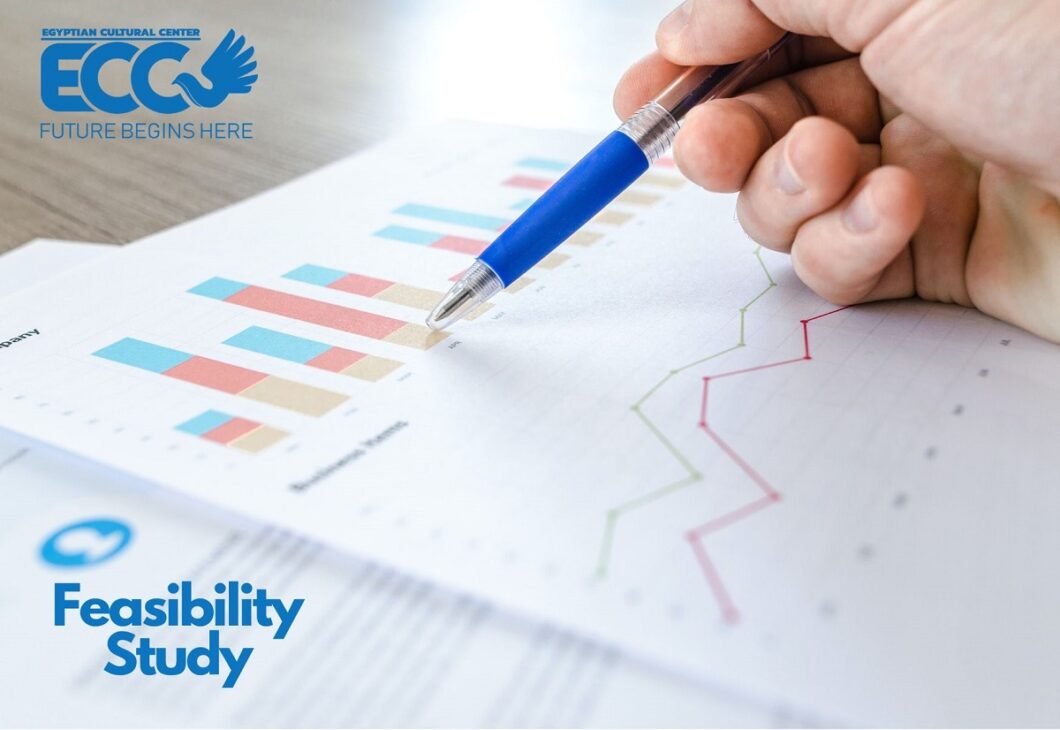Why a Feasibility Study is extremely important for Managers?
The importance of a feasibility study is determined by corporate willingness to “efficiently getting things right” before wasting resources, time, or money on bad projects and then “getting things done quickly and effectively”.
Without thinking about cost, potential profits, and proper planning we fill be shocked that our effort will be useless and existing resources shall vanish easily.
So we will introduce the meaning of a feasibility study without wasting time and summarizing the textbook definitions.
From the name itself, the meaning is implied so that a feasibility study is utilized to check the reliability of a thought or a plan and that includes many steps to be sure that a plan is environmentally, legally, politically, socially and technically feasible without forgetting that it should also be economically justifiable.
A scientific and valid study must provide the decision-maker all introductory info about the idea and previous records of the plan or project, such as a detailed description of the product or service, proposed accounting statements, details of supplying capabilities, marketing investigation reports, intelligence and psychosocial research to be sure that this idea shall succeed in the future to be beneficial for the company.
After the introductory approach, feasibility studies focus on many other core things like internal policies of the company or even personal values of the founder, financial updated data, crucial legal requirements, and tax obligations and all of that to make sure that the idea is reasonable and achievable based on the company’s or founder’s current circumstances.
Finally, feasibility studies go through an exploratory stage to make sure that there are no other better options for using the same resources so that the study focus on the tactical aspects, technical development, execution, and implementation then reviewing results.
A good Feasibility report aids us to objectively select whether to proceed with a potential plan or not.
A Feasibility Study should be objective and controlling subjective pessimism and optimism because it is abstract research to reach a specific successful destination.
While researching we should broaden our business knowledge and put certain things into considerations when thinking whether to launch a novel project or postpone it.
The study has to consider things such as potential challenges and limitations, the marketplace’s atmosphere, staffing requirements, financial commitments and projections
Five aspects of Project Feasibility
A feasibility study determines the project’s potential for growth so that perceived objectivity is the main pillar for the reliability and credibility of the study for potential stakeholders and lending organizations.
There are independent areas that a feasibility study evaluates and we will illustrate these areas.
1-Technical Feasibility – this evaluation focuses on the technical resources available to the corporation. It informs corporations to know if the technical resources are aligned with capacity or not and whether the technical team members are able to convert the thoughts and supposed plans into doable working systems.
Technical feasibility includes evaluation of the hardware, software, and further technology amendments of the addressed system
2-Economic Feasibility – this evaluation is based on studying all factors that can lead to potential losses and gains by conducting cost/ benefits analysis on the project to know probable cost and benefits correlated with a project prior to the allocation of financial resources.
This procedure elevates confidence and enhances project credibility and that help decision-maker or lending organizations to proceed.
3-Legal Feasibility – this particular investigation focuses on whether any dimension of the project contradicts legal frames like constitution, policies, and law.
Knowing that the aim of the project is legal, its place is a good one and no one will get harmed or any bad consequences could happen. A project may not be legal to operate in a specific location so that we can save time and start searching for other places.
4-Operational Feasibility – this process involves thinking about the tactical steps for achievement and study how well the organization’s needs can be fulfilled by finishing the project.
5-Scheduling Feasibility – this evaluation is the intangible factor of success; because a project may fail if not done on the exact time. In scheduling feasibility, an organization predicts how much time the plan will take to be achieved efficiently.
When all of these areas are well checked, the feasibility study will identify any probable limitations and obstacles to overcome and what constraints the proposed project may be affected by and should be fixes and that list of obstacles may include.
– Internal Project challenges: Technical, funding, and human resources.
– External problems: Logistics, Environmental changes, Laws, and procedures.
It is like a SWOT analysis for the project to illustrate the strength points of this project and its weak point as well as showing the future opportunities of this project and threats to the project.
Knowing these findings the company shall think wisely and will be responsible for every loss or gain that shall happen.
3 Main characteristics of the feasibility study team
1-Specific to gather all info required
2-Organizing skills
3-Interpretation abilities as well as reading statics easily to be able to draw findings and recommendations.
Positive impact of adopting a Feasibility Study
A feasibility study shall detect new ideas that could dramatically adjust a project’s scope. It’s better to make these illuminations in advance, rather than to begin and be shocked by the truth acknowledging that the project just won’t be good as expected based on our daydreaming’s thoughts and guessing.
Doing a feasibility study is great to the any organization as it gives you and other stakeholders a clear picture of the proposed project.
8 main advantages of beginning feasibility study:
- Sharpening project teams’ research skills, focus, and critical thinking.
- Showing new streams of opportunities
- Provides a valuable informative guide for implementing a decision
- Laser-focused business maneuver towards better choices and narrowing limited possibilities.
- Illustrate a solid reason to undertake the project
- promote the success rate by evaluating multiple and measurable parameters
- Helps decision-making responsible on the project
- Identifies causes not to proceed


